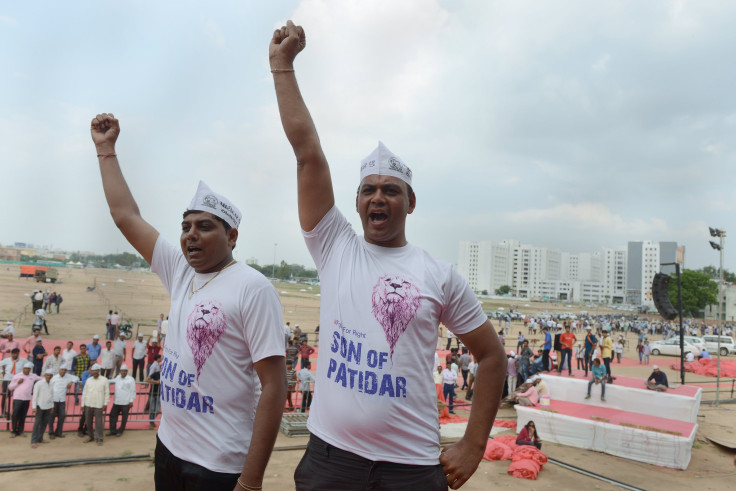Curfew Imposed In India’s Gujarat State After Caste-Based Protest By Patel Community

Paramilitary forces were deployed in the western Indian state of Gujarat Wednesday following overnight protests led by a powerful local community demanding government benefits. The violence forced state authorities to impose a curfew and shut down educational institutions in several parts of the state.
On Wednesday, cellphone networks in Ahmedabad -- the state's commercial capital and largest city -- were blocked to avoid the spreading of rumors and gangs from managing their movements, the Associated Press reported. Workers in the state also struck work for a day. Curfew was imposed in other cities as well, including in parts of Surat, the second-largest city of Gujarat, the Hindustan Times, a local newspaper reported. At least four buses were torched, the report added, citing state fire department officials.
The Patidars, also known as the Patels, a wealthy business community in Gujarat -- which is Prime Minister Narendra Modi's home state -- and abroad, are demanding special status that is typically awarded in the form of affirmative action to certain sections of Indian society. The Patels claim that such policies limit opportunities for their community.
Violence erupted Tuesday night after protesters attacked police with stones and sticks, and set ablaze government and private vehicles, according to the AP. Protests gained momentum after the brief arrest of 22-year-old Hardik Patel, the group's leader. Earlier in the day, Patel led a rally in Gujarat's largest city of Ahmedabad, which was attended by nearly half a million people.
"If you do not give our right, we will snatch it. Whoever talks of [our] interest of Patels will rule over Patels," Patel reportedly told the gathering Tuesday.
India began affirmative action, called the reservation system, to help the poor [who usually also belong to lower castes as defined by Hindu society] to overcome years of discrimination. Modi, whose well-chronicled rise to become one of India's most powerful leaders, also reportedly comes from what the Indian government terms as "Other Backward Classes."
In a brief televised appeal, Modi, said: "Violence does not benefit anybody. … We must work together to solve problems through negotiations."
The Patels reportedly make up about 20 percent of Gujarat's 63 million population, and are engaged in diamond trading, oil processing and the textile industries.
© Copyright IBTimes 2024. All rights reserved.












